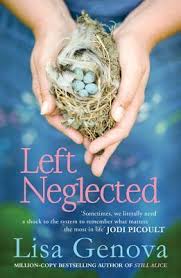
Welcome to the Health Activist Writer’s Month Challenge brought together by WEGO Health – a social network for all health activists. Again, I am participating in the annual Writer’s Month Challenge in which I will be writing about my health activism and health condition based on given prompts.
Monday 27th April: Bye, bye, bye…
Living with an illness, you are more likely to face people who don’t understand your daily struggles. Sometimes, those people can be inconsiderate and hurtful. Have you ever wanted to tell them how you really feel, but didn’t feel like you were able to? Now is your chance! Write an open letter to the people who have hurt you. What would you say to them? What lessons would you like them to learn?
This is a tough post for me to write. There have been plenty in my life over the years who have failed to understand the daily struggles of living with constant dizziness. And as a result of failing to understand my struggles, and the neurological condition that I live with, many friends have failed to stick around in my life, and have lost many friends it seems as a result of chronic illness. It seems that you really do find out who your true friends are when you are in need of friends the most.
Many people have hurt me and dented my self-confidence. The hurt that I have felt as a result of hurtful words or abandonment, has made it difficult for me to be able to trust people. I am now protective of my heart, who I let in my life and who to trust.
And all because of inconsiderate, intolerant and unsympathetic people. 
To those who have hurt me, teased me and abandoned me,
Words cannot describe how much you have hurt me.
Words cannot express how low your cruel words and actions have made me feel.
Do you have any idea that your words and actions can have such a lasting impact on a person?
Do you even care?
What if it happened to your son or daughter? What would you think, or say to those who have hurt your children?
Would you look back on the way you have treated me and feel remorse and shame? Or have you forgotten about your hurtful and cruel behaviour?
I often wonder if you have, as I wish I could.
All of the name-calling, abandonment, and ostracisation have had a lasting impact on my life, and my self-esteem.
The names that you used to call me, still stays with me, ‘freak’ is one such example.
We were only kids back then, and suppose because of this I am able to forgive you. Back then, nobody, not even myself, my parents or the doctors knew what was wrong with me. I was just experiencing vague symptoms; symptoms that made me different from everybody else. Symptoms that made it easy to be picked on. If we were all aware of the neurological condition that made me so different from you and everyone else, would it have made a difference? Would have you shown me compassion and tolerance instead of the cruelty and intolerance?
Dealing with the name-calling and bullying was bad enough, but what hurt even more than that was being ostracised and left out. To have friends turn on me and abandoning me. I wonder what is wrong with me for people to walk out of my life; for people to walk away and never contact again. Like I never even existed. Am I really such a horrible person to be with for you never to speak to me again? Does it have to do with me as a person? Or is it because you cannot handle my neurological condition?
I know that I am unlike most of your other friends. I know my condition prevents me from being able to go out at night clubbing or go on spontaneous trips. I have difficulties in places such as the cinema, or shopping malls which makes outings very difficult for me. But is that really a reason to end a friendship? To just walk away and never talk to me again? I like to think I am a good friend; with those dear friends, I have made online I try and be the best friend that I can be and be there for them when they need me. Giving how many friends that have just up and left in my life, I have doubts. At this moment I am writing this whilst watching One Tree Hill, and watching the strong and lasting friendships develop onscreen makes me jealous of these. What is so wrong with me, that I have never had friendships like those? What is wrong with me that no-one has wanted to be my friend for very long?
Although these experiences have had a lasting impact upon my life and can be attributed to my lack of confidence and self-esteem, I do not want to hold on to bitterness or hatred towards the people, like you that made me feel so worthless. I forgive you. Yes, I have decided to forgive you because I want to be the bigger person. I hope that since we last met, you have learned compassion and tolerance towards those people who are different to you such as those living with chronic illness and disabilities.
I hope that when you have children you teach them to be kind, compassionate and thoughtful towards those who are different.
Teach them to stand up for those who cannot stand up for themselves.
From
Rhiann





